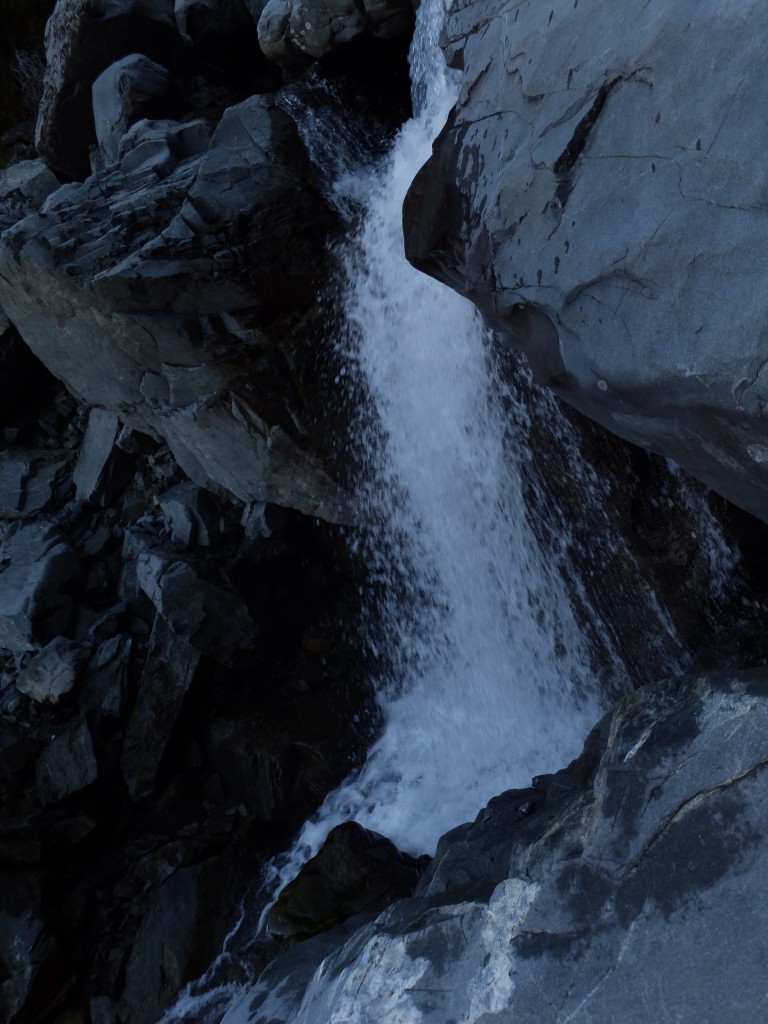
Nobody owns water. Yeah, right
John Key, anxious to position himself on the side of the angels, has reiterated the phrase “Nobody owns water” many times in the last few weeks. The New Zealand public, stunned at the apparently absurd Maori conceit that water can be “owned”, has subsequently echoed and re-echoed that phrase through all our media outlets.
But how true is Key’s assertion? In fact, there is already within our legal system is a judgement awarding a property right over the water in one of our major hydro lakes to one of the energy companies up for partial sale.
Lake Tekapo, nestled amongst tussocky hills and snowy mountains, has beautiful turquoise water – and the High Court ruled in 2005 that Meridian Energy has what is tantamount to a property right over all that water. This decision was based on the existence of Meridian Energy’s permit to generate with more water than is captured by the lake in a typical year.
Meridian, of course, is still owned by us, the taxpayers. So, if we still own Meridian we still own the lake at one remove. Under these circumstances, it doesn’t seem so important that Meridian got our lake water for nothing. We, the New Zealand public, want electricity, and losing water in Lake Tekapo for that benefit is a hard but maybe pragmatic tradeoff.
If, however, we partially sell Meridian and Genesis (the current “owner” of Lake Tekapo after its transfer from Meridian in 2011), who will “own” Lake Tekapo’s water? Who will “own” the rain and snow which falls in our Alps, and the glacial meltwater that runs into the lake? When we granted Meridian ownership of the water, gratis, did we ever imagine what was then unquestionably for the benefit of the public could, one day, become just another source of revenue for private shareholders? I don’t think we did.
I am old enough to remember a different era. My parents loved the rolling, tawny expanses of the Mackenzie Country, and visited it often to enjoy its clear air and three beautiful lakes, each with its own colour and character. Seeing the hydro-electric developments boring their way inexorably across their favourite landscape was very painful and, latterly, their visits stopped. They recognised the nation’s need for electricity, however, and no doubt paid more than their fair share for the dams through the substantial taxes the comfortably off paid in those days: public sacrifice for public good was a principle they understood and believed in.
Nowadays, however, we dance to a different tune, and water is being commercialised. Having given much of the control of our hydro lakes and rivers to our energy companies, without charge, for the “national good”, how much leverage will remain to maintain the values of our rivers and lakes after their partial sale? Nobody talks about “rivers” and “lakes” – they are simply “water” or “resource” in the national discussion.
While we still own our energy companies, under the SOE Act there remains a clause that can require them to act in the public good. But once partially sold under the Mixed Ownership Model Act, we surrender that authority and the companies will operate for the greater economic benefit of their shareholders.
Suddenly it is obvious that ownership and use of water is a fundamental debate we have never had as a nation. One of the first questions we should be discussing is what exactly “ownership” means, and then, perhaps, to what extent permits to use become degrees of ownership.
For example, the status an activity enjoys under the RMA provides different levels of security to the consent holder. The knock-on effect of an activity being classed as “controlled” rather than “discretionary” can be to almost guarantee use for that activity in perpetuity. Meridian, for example, is currently seeking just such a changed classification to its water use permits in the Waitaki. For all practical purposes, how different is this from a property right?
A further overlay is the facility under the same act to trade water. An irrigator, having secured a permit to use free water, can later sell that right directly to another irrigator, thereby deriving wealth from the transaction and denying public opportunity to reconsider its use or its return to river or lake. Isn’t there a degree of ownership in that situation as well?
And how do Maori ideas of ownership vary from those of Pakeha? As I understand it, ownership of a water body to Maori implies both the authority and a duty to care, kaitiakitanga, rather than an exclusive right for personal gain like the European concept. It is a holistic rather than a reductionist approach, a worldview that might restore some dignity to our rivers and lakes, helping to protect them from commoditisation and overexploitation.
One thing is for sure: the water ownership genie will not go back in the bottle. With luck, the recent recommendation of the Waitangi Tribunal might buy us sufficient time to start to fashion our own, uniquely Aotearoa New Zealand solution. Let’s hope that we can all take part in the debate. It would take time and respect, patience and goodwill, but if we were to confront that challenge and succeed, we would have an achievement to feel proud of as a nation, real kotahitanga.
If, however, by prematurely part-privatising our energy assets we are cheated of this opportunity, we risk again confusing money for wealth and becoming a significantly poorer nation, in so many ways.


By declaring’nobody owns water’ Key invites the question then “You are unable to sell, what you as ‘nobody’ just a person in government, do not own? So why not entertain the notion that those who have kaitiakitanga over wai over awa, over moana, may have a legitimate case for ownership? “